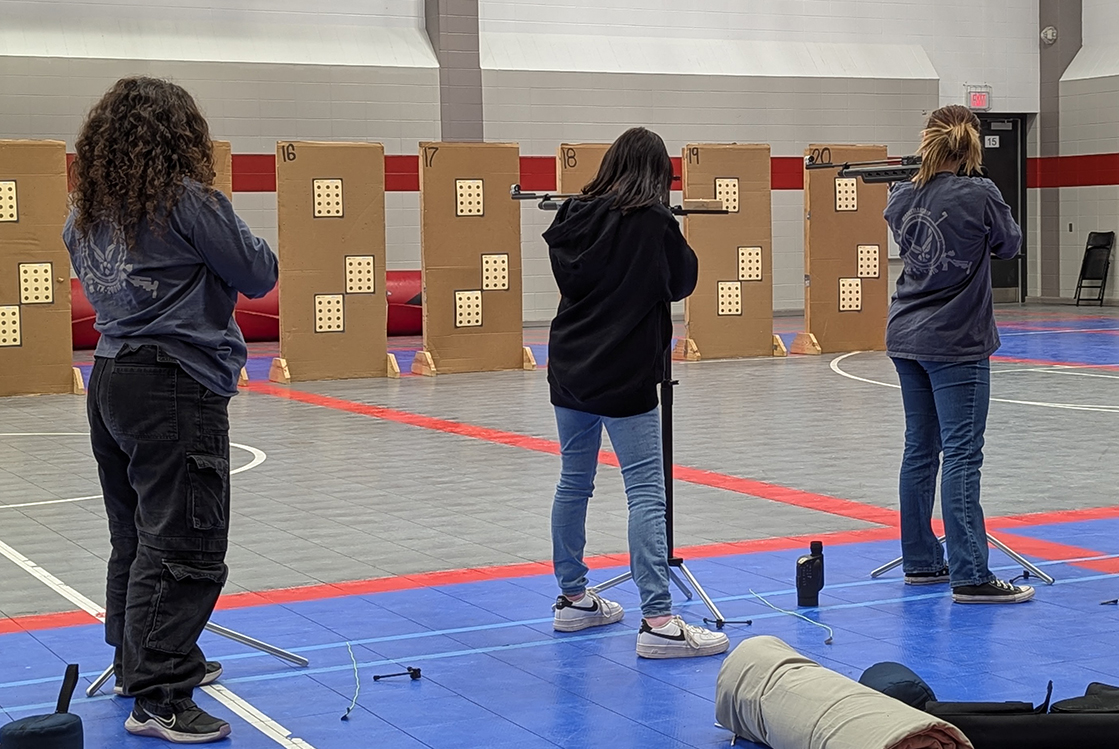Anja Schwalen has dedicated her life to teaching, to language, and to the deep human connections that accompany being a teacher. As a lifetime language teacher, Schwalen has spent decades teaching students the intricacies of learning, challenging them to discover their own path to overcome challenges. Today, she is applying those same principles to her own life as she learns to live with Parkinson’s disease.
Schwalen was an early language enthusiast. After her native German, she learned English during 2nd grade, and then she tackled Latin in 7th grade, French in 9th, and finally Spanish. Her passion for learning is directly tied to people and relationships.
As a young child, the educators who demonstrated love, care, and guidance during difficult times at home became like second parents to Schwalen as they helped mold her academically and emotionally. Seeing the kind of influence that teachers could have on a child transformed her life, and she decided to become a teacher herself so she could do the same for her own students in the future.
At first, Schwalen thought she would be a professor, but ultimately felt she could do more for students in a high school environment. For 24 years, she taught at Texas A&M University, Blinn College, A&M Consolidated High School, and Bryan High School, influencing thousands of students with her passion for language and cultural exploration.
Schwalen’s daughter, Sandy, recognizes her mother’s remarkable ability to connect with people. Schwalen has always been willing to listen, and that openness was something her students appreciated. Sandy also believes her mother had a unique way of showing students worlds beyond their own, expanding their perspectives, and inspiring them, as many former students have been motivated to study languages in college or travel abroad.
But as retirement drew closer, she faced a challenge she could not have foreseen—Parkinson’s disease.
By 2016, Schwalen started experiencing changes in behavior and thought patterns. She became increasingly overwhelmed by routine tasks, and things that were once effortless required considerable concentration. Students observed her becoming increasingly short-tempered, and she found herself experiencing unexplainable mood swings. She initially attributed the changes to stress and the emotional impact of an empty nest after her own children graduated and moved out. Her family and close friends, particularly her friend Stephanie, became increasingly concerned about her new behaviors.
Stephanie, in 2018, noticed that Schwalen developed a limp, and her left arm did not swing while she walked. This triggered Stephanie to encourage Schwalen to seek medical advice. Initially, Schwalen consulted an orthopedic specialist, but he quickly dismissed her concerns as she did not have tremors. He thought the lack of tremors eliminated Parkinson’s disease. Once more, Stephanie was persistent and convinced Schwalen to consult a neurologist. After a DaTscan, a scan that quantifies dopamine transporters in the brain, Schwalen finally received a diagnosis: Parkinson’s disease.
Parkinson’s is a degenerative neurological disease that impairs movement, coordination, and mood. It is caused by a lack of dopamine, a neurotransmitter responsible for motor function. For Schwalen, the disease has revealed some unexpected challenges, but it has also reminded her of the values she holds close to her heart—courage, a passion for learning, and the resilience of the human condition. Schwalen often found the stiffness and slowness in her movements to be deeply frustrating and noticed that fatigue would set in more quickly because so much energy was spent resisting the symptoms.
Even outside the classroom, Schwalen teaches by example, illustrating that adversity—whether academic or personal—can be conquered through perseverance and the support of others. During her battle against Parkinson’s, Schwalen remains a student of life, learning and evolving, much as she once taught her own students to do. Her story is one of strength, of courage, and of unbreakable bonds formed when we leave our hearts open to learning—yes, from books, but also from all the lessons life experiences have to offer.
Once Schwalen had a diagnosis, her attitude and perspective shifted. Instead of resisting change, she embraced it, slowing down, being more mindful of her students, and focusing on what she could control. She found inner peace by prioritizing her class and students over the daily needs of district expectations and requirements.
Schwalen also understood that one of the biggest myths about Parkinson’s is the belief that individuals afflicted with the disease have to take it easy. In reality, movement is essential. To fight the disease’s progression, Schwalen signed up for Rock Steady Boxing, a form of exercise designed to help Parkinson’s patients maintain mobility and strength.
At first, she was reluctant. Boxing was not really her style and seemed incompatible with her reserved, passive nature, but she discovered Rock Steady Boxing was not about combat; it was about endurance, toughness, and pushing a person to their limits in positive ways.
The gym offered more than the physical benefits of balance, coordination, and strength training, which are all essential to fighting Parkinson’s. It offered Schwalen a sense of belonging and the opportunity to connect with others who were going through a similar experience.
Through her participation at the gym, Schwalen gained both strength and developed friendships. She started a women’s group at the gym to create a safe space to share experiences, fears, and victories.
Schwalen has spent her life building bridges—between languages, cultures, and people. Her love for language was never just about vocabulary and grammar; it was about opening doors to new worlds, forging friendships across borders, and discovering common humanity.
Now, in this new chapter of her life, Schwalen continues to build those connections. Retirement in 2022 did not mark the end of her influence—it simply shifted its focus. Through her women’s group, Rock Steady Boxing, and the relationships she continues to nurture, Schwalen remains a teacher in the truest sense.
Her journey with Parkinson’s is ongoing, but it is not a story of defeat. It is a story of perseverance, of adapting, of refusing to let challenges define her. Her motto, “Nunca te rindas—Never give up,” has become a rallying cry for those affected by the disease.
Anja Schwalen once taught her students to approach the unknown with openness and wonder. Now, she teaches by example—through her actions, her words, and her unwavering heart—that in the face of adversity, we can all keep discovering, connecting, and moving forward.







